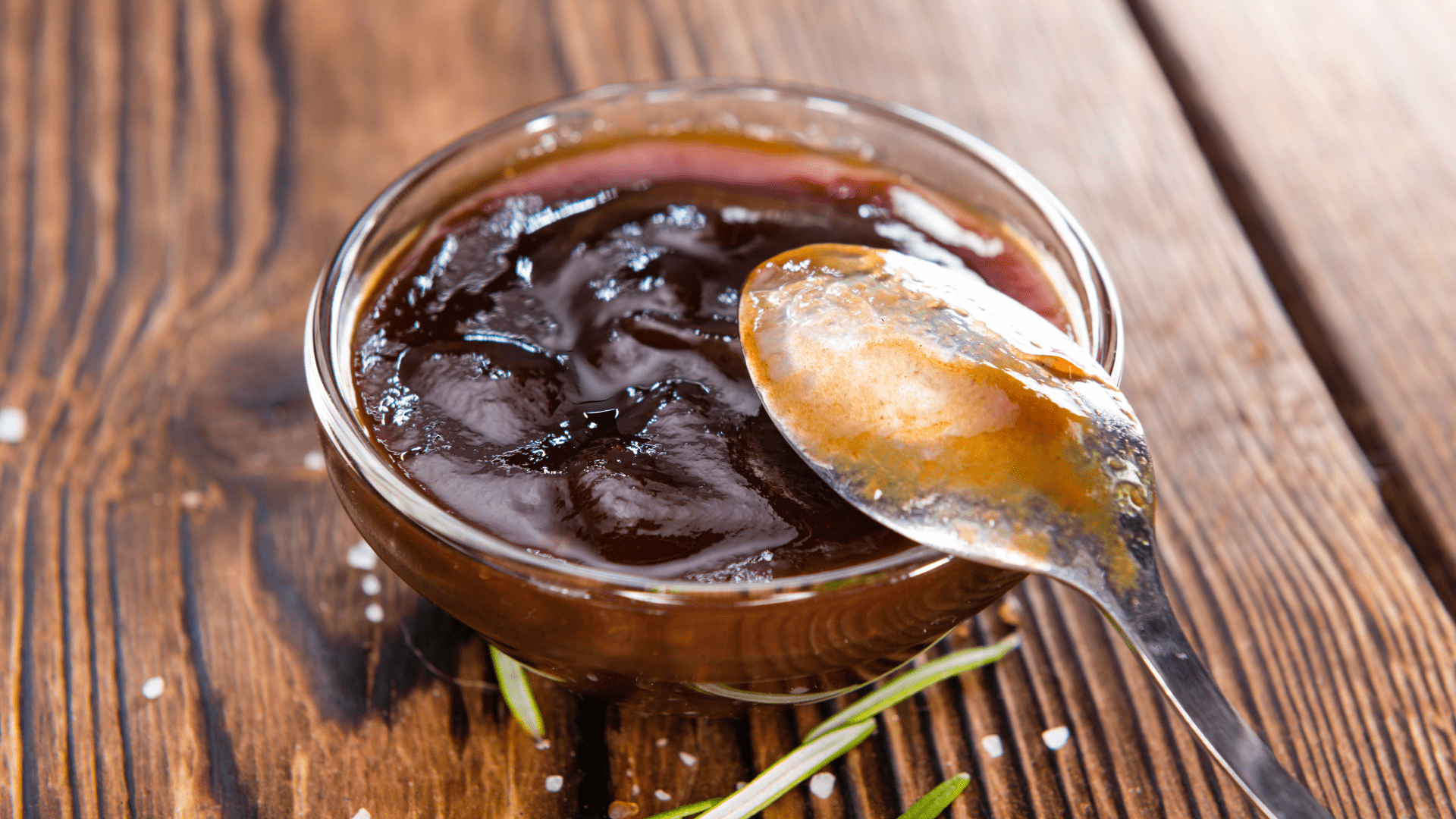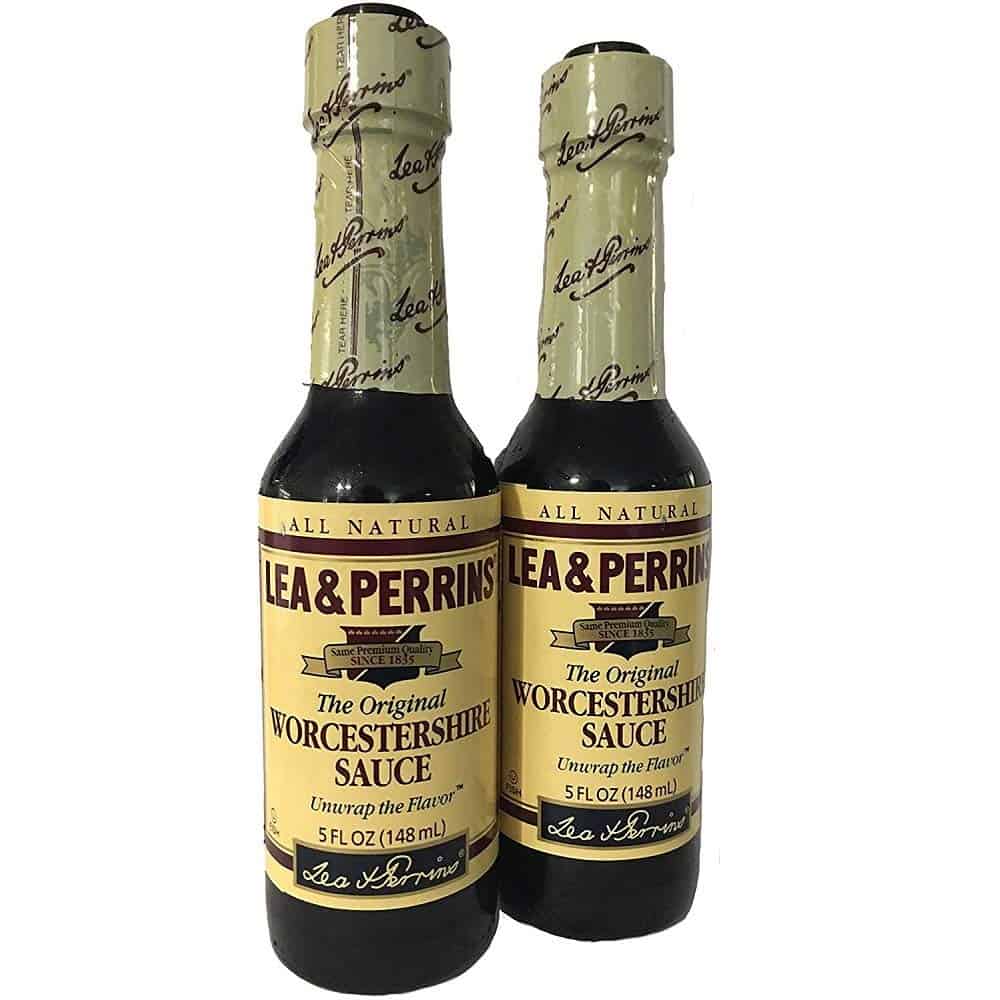Is Worcestershire sauce halal? Not always, so check the label
Worcestershire sauce, or simply Worcester sauce, is a popular British condiment in the United Kingdom and the United States.
People consume it with meat, sandwiches, vegetables, stir-fries, and practically everything they find convenient.
However, as a Muslim, you cannot just pick a bottle of some random sauce, put a generous amount of it on your food, and call it a day.
You have to confirm whether what you are using stays within the Islamic boundaries of halal consumables or not!

The same case is with Worcestershire sauce, as it comes primarily from Western manufacturers.
Well, here’s the good news!
Worcestershire sauce is halal as long as it does not contain any substances prohibited in Islam. Those specifically include pork, which was one of the ingredients of the original, 1835 formula of Worcestershire sauce. Nowadays you can buy Halal (and also Kosher) Worcestershire sauce.
Now let’s get into a bit of detail about halal and haram, the overall ingredients used in Worcestershire sauce, and a detailed overview of when this sauce becomes halal for Muslims.
Rather not use Worcestershire sauce? Here are 10 great substitutes that will work just as fine

Check out our new cookbook
Bitemybun's family recipes with complete meal planner and recipe guide.
Try it out for free with Kindle Unlimited:
Read for freeIn this post we'll cover:
The principles for specifying a food halal or haram
Before explaining how Worcestershire sauce is halal, we first need to understand the basic concept of halal and haram. This way, we’ll have a clearer picture as we get deep into the discussion.
That being said, the following are the criteria to deem whether something is halal or haram (prohibited):
What is halal food?
Halal is any plant food that does not involve alcohol during preparation and is not prepared in pig fat or lard.
Some examples of halal foods include rice, pasta, baked goods, and anything that does not contain haram items.
Moreover, any meat (most herbivores, and a few carnivores) other than pork, including chicken, mutton, beef, etc, obtained from an animal slaughtered according to Islamic principles is halal.
What is haram food?
According to the Islamic teachings and the principles described by the Quran, the following things, and any dish (or sauce), that contains them are deemed haram:
- All the najs things (impurities) and anything that comes into contact with it (blood, feces, intoxicants, and urine)
- Swine/pig and all the consumables obtained from it
- Animals that are slaughtered in an un-Islamic way
- Reptiles
- Most carnivores
- Fish without scales
- Dead animals
For food to qualify for halal, it must not be one of those above and must not contain and functional ingredient obtained from them.
What is Worcestershire sauce and what are its ingredients?

The Worcestershire sauce is a fermented liquid first created in Worcester, England, by two pharmacists named William Henry Perrins and John Wheeley Lea.
Its taste is like soy sauce, with almost the same savory umami flavor, but with a bit of sweetness.
Moreover, the sodium found in the Worcestershire sauce is much less than its Chinese counterpart. Plus, Worcestershire sauce is gluten-free.
The Worcestershire sauce is basically prepared from anchovies fermented in malt vinegar. Other ingredients include molasses, tamarind extract, chili pepper extract, anchovies, garlic, onions, sugar, and salt.
There are also some other undisclosed “natural ingredients” used in the sauce which are secret to every manufacturer.
Here, it’s worth mentioning that the best sauce is still made by the original manufacturer, known as Lea & Perrins Worcestershire sauce.
Is Worcestershire sauce halal or haram?
Unlike something that can be completely specified in one or other category of the two, the status of Worcestershire sauce is conditional as it’s available in two variants.
The first variant of Worcester sauce stays true to the traditional recipes and does not contain any functional ingredients like pork liver.
This one is halal certified as per the Islamic rules by several worldwide organizations.
The other variant, mostly available in the American market, is haram. That’s due to the presence of animal ingredients, e.g., pork liver.
In other words, you have to see on the bottle whether it’s halal-certified or not. If you don’t see the label, look at the ingredients at least.
There are a lot of brands that now manufacture halal Worcester sauce.
Is Lea & Perrins Worcestershire sauce halal?
The simple answer would be no…and yes! The Lea & Perrins Worcestershire sauce originally contained pork liver in their 1835 recipe.
However, it’s important to mention that they have recently introduced a slightly tweaked version of their original formula to appeal to a broader range of consumers, known as the “Kosher Worcester Sauce.”
In the new formula, the brand has removed any ingredient of animal origin, except anchovies. As the product is all-natural, with no pig content whatsoever, it is safe to say that it’s halal.
However, you might ask, what about the anchovies? It’s still an animal. How do I know if it’s halal, given that the manufacturing process doesn’t necessarily happen in an Islamic way?
Well, here’s the thing! The Jewish principles regarding slaughtering and meat consumption are more strict and broader than the Islamic laws.
In other words, anything permitted for eating in Islam and is Kosher is automatically halal.
Besides, there’s no slaughter method specified in the Islamic principles regarding fish, and it is halal even dead, provided the conditions:
- The fish is scaled.
- The fish had come out of the water alive, and it was dead only in the fishing net.
- The fish wasn’t exposed to any painful practice before dying/slaughtering.
Hence, we have two versions of the Lea & Perrins Worcestershire sauce, the original one, which is haram, and the Kosher one, which is halal.
You can find both in most American and British grocery stores easily. Just pick the Kosher one, and there’s nothing to worry about!
What are the best halal alternatives to Worcestershire sauce?
If you can’t seem to find a halal Worcestershire sauce in your surroundings, don’t panic!
There are a lot of great hacks and alternatives you can use, and they’ll taste just the same…or at least close!
Following are some of them:
Soy sauce, ketchup, and white vinegar mix
Yup, this might seem a bit, or maybe, a very strange combination. But hey, it works.
Tang, salty, savory, and a little sweet, the mixture perfectly catches the basic essence of Worcester sauce.
Moreover, you can also add a little chili sauce to make it more spicy. Just keep in mind that the ratio of each sauce added should be an equal ratio.
Soy sauce mixed with sugar
Soy sauce mixed with sugar serves as a great substitute for making a recipe such as a bolognese or beef stew.
Just add a splash of soy sauce with a pinch of brown sugar ( You can add as much as the recipe requires, wink wink), and you’ll have all the basic flavors of Worcestershire sauce.
Balsamic vinegar
You might know or not, but vinegar is the primary ingredient of Worcestershire sauce.
That being said, balsamic vinegar is a great alternative; it has a very complex flavor, with a touch of tartness and mild sweetness specific to Worcester.
Fish sauce
Here’s the thing! Both Worcestershire sauce and fish sauce are made by fermenting anchovies.
However, the Worcestershire sauce has a little more sweetness and a more complex flavor due to the presence of tamarind, onion and garlic.
The good news is, all you need to add are some molasses to the fish sauce, and you have an awesome-tasting, halal alternative at hand!
Coconut aminos
Coconut aminos are another great alternative to Worcestershire as they have the same sweet and savory flavor.
There’s just one thing you need to know, though! They aren’t as vinegary. But that shouldn’t be a big thing for most people.
Find 10 more great substitutes for Worcestershire sauce here
Conclusion
And there you have it! Now you know whether Worcestershire sauce is halal or not. Plus, when you should and shouldn’t use one.
Also, we went through some of the best alternatives you can try out if you don’t have halal Worcestershire sauce available in your surroundings.
Also read: 22 best sauces for rice [you need to try hot sauce no. 16!]
Check out our new cookbook
Bitemybun's family recipes with complete meal planner and recipe guide.
Try it out for free with Kindle Unlimited:
Read for freeJoost Nusselder, the founder of Bite My Bun is a content marketer, dad and loves trying out new food with Japanese food at the heart of his passion, and together with his team he's been creating in-depth blog articles since 2016 to help loyal readers with recipes and cooking tips.
